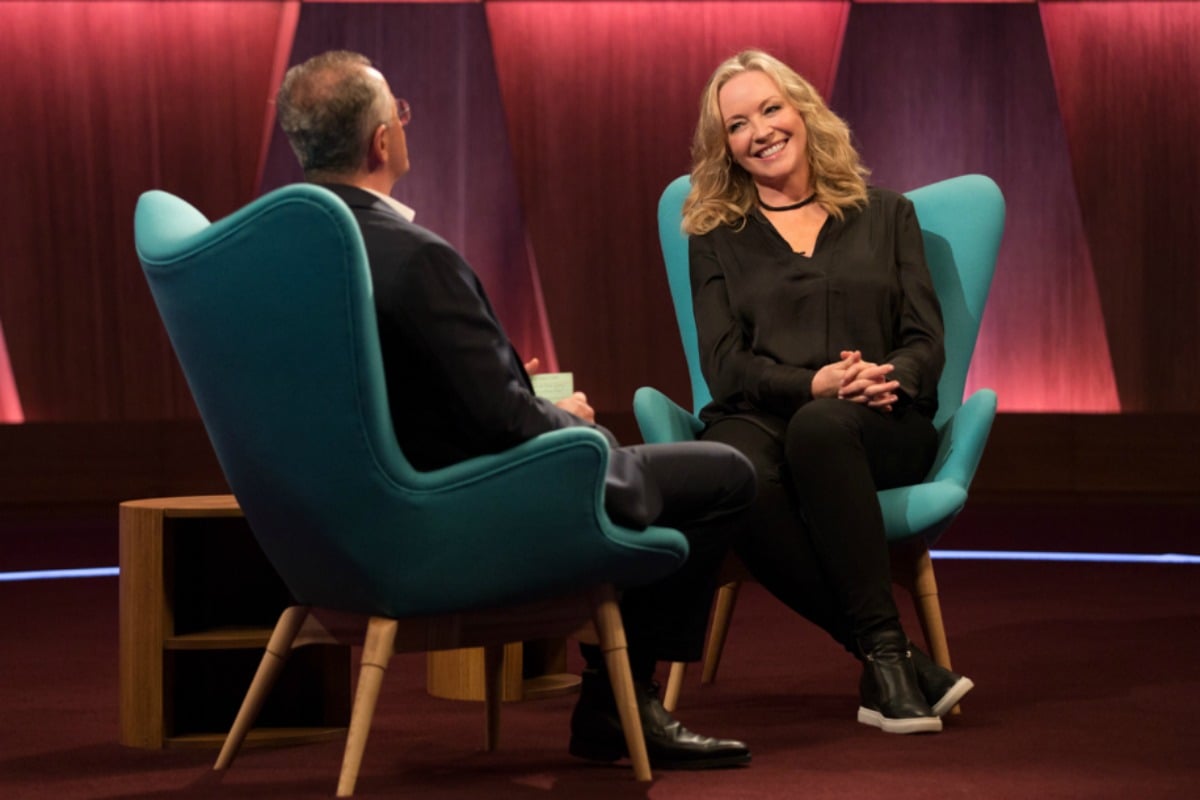
CONTENT WARNING: This post deals with domestic violence and depression and may be triggering for some readers.
To most Australians, actress Rebecca Gibney is instantly recognisable as everyone’s favourite “cool mum” Julie Rafter from beloved television drama Packed to the Rafters.
The New Zealand-born actress is one Australia’s most appreciated talents, whose warmth both on and off the telly has made her a household name and enduring screen presence.
But life hasn’t always been smooth sailing for the 54-year-old.
Sitting down with Andrew Denton on tonight’s episode of Interview, the mother-of-one – who lives in Dunedin, New Zealand with her husband of 19 years Richard Bell and 15-year-old son Zac – spoke about her previous struggles with mental health, and how a nervous breakdown in her early 30s forced her to address her difficult upbringing in a family of domestic violence.
It’s an issue she feels passionate about discussing to aid those in a similar situation, and ultimately break the stigma surrounding mental health.
Watch a snippet from Rebecca’s chat with Andrew below. Post continues after.





























































































